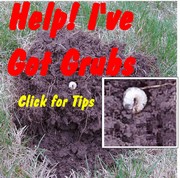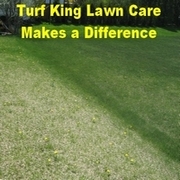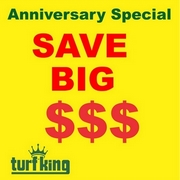This winter the birds have really appreciated being fed. There has been a lot more snow so far this winter. Over the past little while, we seem to get 1-3 inches of snowfall overnight. Not a lot and we have gotten the odd sunny day to melt some of it. But there was enough for us to have a White Christmas. Just enough that the walkway could use a quick cleanup. And enough to remain on our gravel driveway to form a few icy patches. I don't clear the drive right down to the gravel because I'm not happy if the snow blower throws a lot of gravel on the lawn. That makes my spring lawn care more work in removing that gravel.
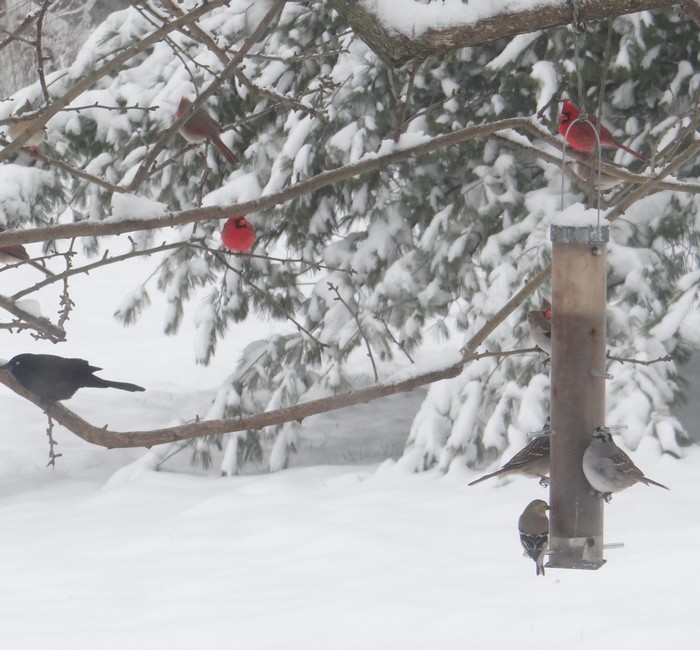
I prefer only 3 kinds of bird feed.
Niger seed for the finches- using the special feeders with the small holes. This feeder goes on a tree in the lawn. That way any stray thistle seeds don't come up next year in the flower beds. I don't purposely buy the mixed seed, but once in a while someone will give me a bag as a gift. This type of feed is also place on the lawn. For a change a couple of years ago, I planted some bird seed in the vegetable garden to see what would come up. The plants were interesting to say the least.
My preferred seed for the masses is black sunflower seed. Most of the birds seem to prefer this seed. Feeders with sunflower seeds are okay if they are above a garden bed. If the odd seed does grow next spring, it is a welcome addition to the shrubs, perennials or other plants. By the way, when I do plant sunflower deliberately, I just save a tin can full of the bird feed. It is much less expensive than to buy a two dollar package of sunflower seeds. Some years, we can have a whole row of sunflowers along one edge of the vegetable patch.
The third feed is unshelled peanuts. This is great for the woodpeckers and chickadees. When we have nuts in the house my daughter-in-law says we should have unshelled nuts. The act of shelling the nuts before you eat them broadens the experience of eating them. And since nuts are relatively high calorie (but nutritious and tasty) the shelling process keeps you from overindulging. So, I guess it's the same for the birds. Having them pick a hole in the peanuts, should make the feeding more enjoyable.
Sometimes in the spring, I see lawns where there is a bird feeder pole and the grass under and around the pole is much greener and thicker than the surrounding lawn. I always wondered why the bird feed would make the grass so much greener. Maybe, I thought the shells from the sunflowers that are left by the birds enriches the soil with organic matter which in turn leads to a healthier grass.
Then it just hit me today that the real reason the lawn does better under the feeder is because when the birds are feeding at the feeder all winter, they are also leave behind some bird droppings as they eat. The grass isn't greener because of the bird feed- well not directly anyway. The bird feed, after it has been digested is left behind and fertilizes the lawn with various nutrients. That's why the lawn is greener.
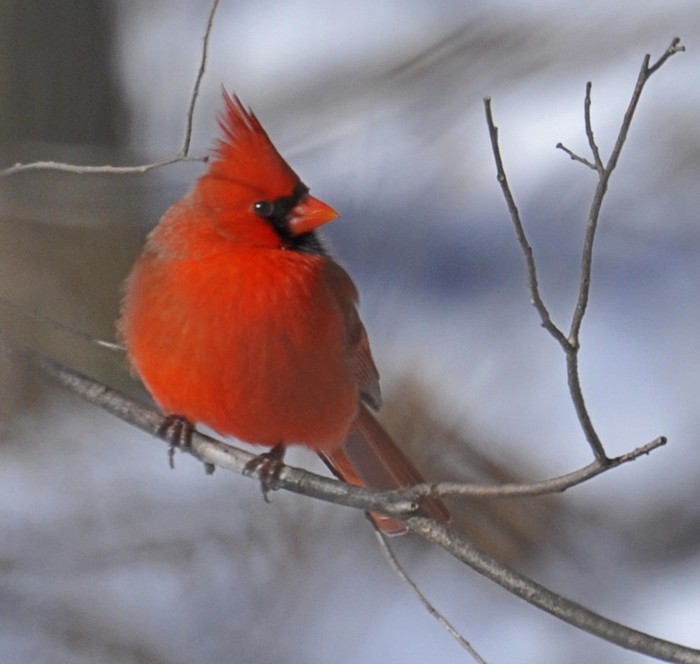
So go ahead and feed the birds - in the lawn or above the flower beds. The birds will certainly appreciate it. And the lawn or the shrubbery will also benefit from the bird feed.
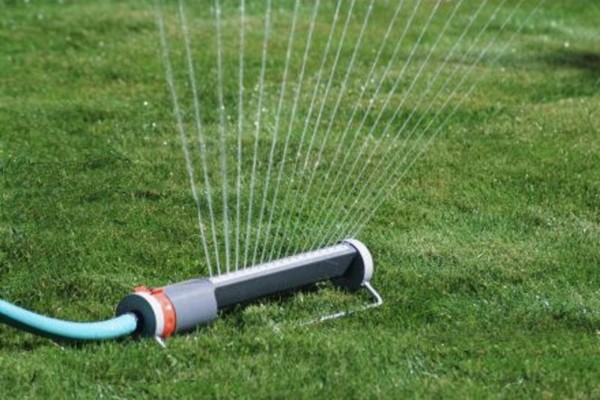
Henry asks
An inspection was done. One recommendation is
' Avoid watering in evening'
Please explain the reason. I always thought this would minimise evaporation.
Turf King the Lawn Care Experts








